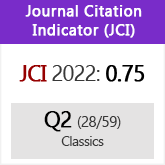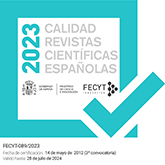Xenia: ritualized-friendship from Homer to Herodotus
DOI:
https://doi.org/10.3989/emerita.2016.11.1515Keywords:
Xenia, ritualized friendship, Homer, HerodotusAbstract
The paper examines the linguistic configuration of ritualized-friendship through a contrastive analysis of the Homeric poems and Herodotus’ Histories. First, the critical approaches to xenia in the Greek world are charted. Second, the overall characteristics of the language of ritualized-friendship in the Homeric epic are outlined through a lexical analysis of the semantic field of xenos and its cognates. Finally, the development of the conceptual framework of ritualized-friendship is traced in Herodotus’ narrative. The analysis shows that Herodotus draws on a nominal abstract form ξεινίη, absent in Homer, and employs it from a geopolitical and largely secular stance, as a relatively technical term to designate inter-aristocratic bonds of friendship or alliance.
Downloads
References
Adkins, A. W. 1960: Merit and Responsibility: A Study in Greek Values, Oxford.
Adkins, A. W. 1963: «Friendship and Self-suficiency in Homer and Aristotle», CQ 13, pp. 30-45. http://dx.doi.org/10.1017/S0009838800001579
Adkins, A. W. 1972: Moral values and Political Behaviour in Ancient Greece: From Homer to the End of the Fifth Century , Londres.
Alonso, V. 2007: «War, Peace, and International Law in Ancient Greece,» en Raaflaub, K. A. (ed.) War and Peace in the Ancient World , Oxford, pp. 206-225 http://dx.doi.org/10.1002/9780470774083.ch12
Austin, M. M. 1990: «Greek tyrants and the Persians, 546-479 B. C.», CQ 40, pp. 289-306. http://dx.doi.org/10.1017/S0009838800042889
Baslez, M. F. 1984: L'étranger dans la Grèce antique, París.
Benveniste, E. 1966: Problèmes de linguistique générale, París.
Benveniste, E. 1969: Le vocabulaire des institutions indo-européennes, 1: Economie, Parenté, Société; 2: Pouvoir, Droit, Religion, París.
Benveniste, E. 1973: Indo-European Language and Society, Londres.
Blundell, M. W. 1989: Helping friends and harming enemies. A study in Sophocles and Greek ethics, Cambridge.
Cobet, J. 1971: Herodots Exkurse und die Frage der Einheit seines Werkes Historia Wiesbaden.
Connor, W. R. 1971: The New Politicians of Fifth-Century Athens, Princeton, Nueva Jersey.
Corsaro, M. 1991: «Gli Ioni tra Greci e Persiani. Il problema dell'identità ionica nel dibattito culturale e politico del V secolo», en Sancisi-Weerdenburg, H. y Kuhrt, A. (eds.) Achaemenid history VI. Asia Minor and Egypt: Old Cultures in a New Empire. Proceedings of the Groningen Achaemenid history workshop, Leiden, pp. 4-55.
Donlan, W. 1980: The Aristocratic ideal in ancient Greece. Attitudes of superiority from Homer to the end of the fifth century B. C , Lawrence, K.A.
Donlan, W. 1981-82: «Reciprocities in Homer», CW 75, pp. 137-175.
Donlan, W. 1989: «The Pre-State Community in Greece», SO 64, pp. 5-29.
Donlan, W. 1993: «Duelling with Gifts in the Iliad: As the Audience Saw it», Coby Quarterly 29, pp. 155-172.
Donlan, W. 1998: «Political Reciprocity in Dark Age Greece: Odysseus and his hetairoi», en Gill, C., Postlethwaite, ?. y Seaford, R. (eds.), pp. 51-73.
Evans, J. A. S. 1963: «Histiaeus and Aristagoras», AJPh 84, p. 113-128.
Finley, M. 1977: Uso y abuso de la historia, Barcelona.
Finley, M. 1978: The World of Odysseus, Harmondsworth.
Gauthier, P. 1973: «Notes sur l'étranger et l'hospitalité en Grèce et à Rome», Ancient Society 4, pp. 1-21.
Gill, C., Postlethwaite, R. y Seaford, R. (eds.) 1998: Reciprocity in Ancient Greece, Oxford.
Goldhill, S. D. 1986: Reading Greek Tragedy, Cambridge. http://dx.doi.org/10.1017/CBO9780511627354 PMCid:PMC1290356
Gouldner, A. W. 1960: «The Norm of Reciprocity: A Preliminary Statement», American Sociological Review 25, pp. 161-178. http://dx.doi.org/10.2307/2092623
Greenwood, E. 2007: «Bridging the narrative (5. 23-7)», en Irwin, E. & Greenwood, E. (eds.) Reading book V. A Study of the logoi in Book 5 of Herodotus' Histories, Cambridge, pp. 128-145.
Gregory, C. A. 1982: Gifts and Commodities, Londres.
Hammond, N. G. L. 1955: «Studies in Greek Chronology of the sixth and fifth centuries B. C.», Historia 4, pp. 371-411.
Hansen, M. H. 1991: The Athenian Democracy in the Age of Demosthenes. Structures, principles and ideology, Oxford.
Herman, G. 1987: Ritualised friendship and the Greek City, Cambridge.
Hooker, J. 1987: «Homeric ?????», Glotta 65, pp. 44-65.
How, W. y Wells, J. 1936: A Commentary on Herodotus, Oxford.
Hude, C. 1927: Herodotus , Oxford.
Immerwahr, H. R. 1957: «The Samian Stories of Herodotus», CJ 52, pp. 312-22.
Immerwahr, H. R. 1966: Form and Thought in Herodotus, Cleveland.
Kakridis, H. J. 1963: La notion de l'amitié et de l'hospitalité chez Homère, Tesalónica.
Karavites, P. 1992: Promise-giving and Treaty-making. Homer and the Near East, Leiden.
Keinast, D. 2002: «Bemerkungen zum Jonischen Aufstand und zur Rolle des Artaphernes», Hist 51, pp. 1-31.
Konstan, D. 1997: Friendship in the Classical World, Cambridge. http://dx.doi.org/10.1017/CBO9780511612152 PMCid:PMC508486
Lacey, W. K. 1968: The family in Classical Greece, Londres-Southampton.
Low, P. 2007: Interstate Relations in Classical Greece: Morality and Power , Cambridge.
Mac Cormack, G. 1976: «Reciprocity», Man 11, pp. 89-103. http://dx.doi.org/10.2307/2800390
Marek, Ch. 1984: Die Proxenie, Frankfurt. PMCid:PMC271525
Mauss, M. 1970: The gift: Form and Functions of Exchange in Archaic Society, Nueva York.
Millett, P. C. 1991: Lending and Borrowing in Ancient Athens, Cambridge. http://dx.doi.org/10.1017/CBO9780511518577
Mitchell, B. M. 1975: «Herodotus and Samos», JHS 95, pp. 75-91. http://dx.doi.org/10.2307/630871
Mitchell, L. 1997: Greeks Bearing Gifts: The Public Use of Private Relationships in the Greek World, 435-323 BC., Cambridge.
Monro, D. y Allen, T. 1920: Homeri Opera in five volumes, Oxford.
Morris, I. 1986: «The Use and Abuse of Homer», Classical Antiquity 5, pp. 81-138. http://dx.doi.org/10.2307/25010840
Mosley, D. 1973: Envoys and Diplomacy in Ancient Greece, Historia Einzelschriften 22, Wiesbaden.
Munson, R. V. 2007: «The trouble with the Ionians: Herodotus and the beginning of the Ionian Revolt (5.28-38.1)», en Irwin, E. y Greenwood, E. (eds.) Reading book V. A Study of the logoi in Book 5 of Herodotus' Histories, Cambridge - Nueva York, pp. 146-167.
Murray, O. 1988: «The Ionian Revolt», en Boardman, J. et al., (eds.) The Cambridge Ancient History. IV , Cambridge, pp. 461-490. http://dx.doi.org/10.1017/chol9780521228046.019
Murray, O. 1990: «The Affair of the Mysteries: Democracy and the Drinking Cup», en Murray, O. (ed.), Sympotica: A Symposium on the Symposion, Oxford, pp. 149-161.
Nenci, G. 1994: Erodoto. La rivolta della Ionia. V Libro delle Storie, Milán.
Neville, J. 1979: «Was there an Ionian Revolt?», CQ 29, pp. 268-275. http://dx.doi.org/10.1017/S0009838800035904
Osborne, C. 1994: Eros Unveiled: Plato and the God of Love , Oxford.
Panessa, G. (ed.) 1999: Philiai I, Pisa.
Pitt-Rivers, J. 1973: «The kith and the kin», en Goody, J. (ed.), The Character of Kingship, Cambridge, pp. 89-105.
Reece, S. 1993: The Stranger's Welcome: Oral Theory and the Aesthetics of the Homer Hospitality Scene , Ann Arbor.
Robinson, D. 1990: «Homeric ?????: love of life and limbs, and friendship with one's ?????», en Craik, E. M. (ed.), «Owls to Athens»: Essays on Classical Subjects presented to Sir Kenneth Dover, Oxford, pp. 97-108.
Rösler, W. 1980: Dichter und Gruppe: Eine Untersuchung zu den Bedingungen und zur historischen Funktion früher griechischer Lyrik am Beispiel Alkaios , Múnich.
Santiago Álvarez, R. 2004: «La familia léxica de xénos en Homero: usos y significados, II (Odisea)», Faventia 26, pp. 25-42.
Santiago Álvarez, R. 2007: «La familia léxica de ξένος en Homero: usos y significados, I (Ilíada)», en Alonso Aldama, J., García Román, C. y Mamolar Sánchez, I. (eds.), ΣΤΙΣ ΑΜΜΟΥΔΙΕΣ ΤΟΥ ΟΜΗΡΟΥ. Homenaje a la Profesora Olga Omatos, Vitoria-Gasteiz, pp. 733-742.
Santiago Álvarez, R. 2013: «La polaridad huésped/extranjero en los poemas homéricos» en Santiago Álvarez, R. y Oller Guzmán, M. (eds.), Contacto de poblaciones y extranjería en el mundo griego antiguo. Estudio de fuentes, pp. 29-45.
Schmitt-Pantel, P. 1990 : «Sacrificial meal and Symposion : two models of civic institutions in the archaic city?», en Murray, O. (ed.), Sympotica: A Symposium on the Symposion, Oxford, pp. 14-33.
Schmitt-Pantel, P. 1997: La cite au banquet: Histoire des repas publics dans les cités grecques , Roma.
Schwartz, M. 1985: «Scatology and eschatology in Zoroaster», en Papers in Honor of Professor Mary Boyce. II, Acta Iranica 25, Berkeley, pp. 188-191.
Scott, L. 2005: A Historical Commentary on Herodotus 6 , Leiden.
Seaford, R. 1994: Reciprocity and Ritual. Homer and Tragedy in the Developing City-State, Oxford.
Stadter, P. A. 2002: «Historical thought in ancient Greece», en Kramer, L. y Maza, S. (eds.), A Companion to Western Historical Thought , Oxford, pp. 35-59. http://dx.doi.org/10.1002/9780470998748.ch3
Stehle, E. M. 1994: «Cold meat: Timokreon on Themistocles», AJPh 115, pp. 507-524.
Tausend, K. 1992: Amphyktionie und Symmachie. Formen zwischenstaatlicher Beziehungen im archaischen Griechenland, Stuttgart.
Tozzi, P. 1978: La rivolta ionica, Pisa.
van Wees, H. 1992: Status Warriors: War, Violence and Society in Homer and History, Amsterdam.
Vernant, J. P. 1965: Los orígenes del pensamiento griego, Buenos Aires.
von Reden, S. 1995: Exchange in Ancient Greece, Londres. PMid:9970357
Walbank, M (1978): Athenian Proxenies of the Fifth Century, Toronto - Sarasota.
Wallace, M. B. 1970: «Early Greek proxenoi », Phoenix 24, pp. 189-208. http://dx.doi.org/10.2307/1087240
Will, E. 1997: El mundo griego y el Oriente, T. I. El Siglo V (510-403) , Madrid.
Downloads
Published
How to Cite
Issue
Section
License
Copyright (c) 2016 Consejo Superior de Investigaciones Científicas (CSIC)

This work is licensed under a Creative Commons Attribution 4.0 International License.
© CSIC. Manuscripts published in both the printed and online versions of this Journal are the property of Consejo Superior de Investigaciones Científicas, and quoting this source is a requirement for any partial or full reproduction.All contents of this electronic edition, except where otherwise noted, are distributed under a “Creative Commons Attribution 4.0 International” (CC BY 4.0) License. You may read here the basic information and the legal text of the license. The indication of the CC BY 4.0 License must be expressly stated in this way when necessary.
Self-archiving in repositories, personal webpages or similar, of any version other than the published by the Editor, is not allowed.














